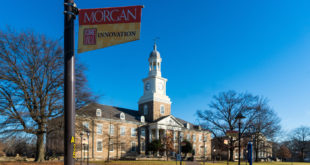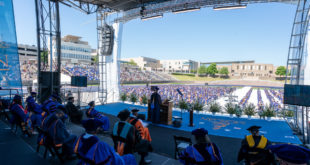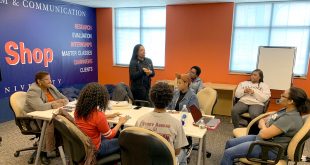Morgan State University was today listed among more than 100 colleges and universities nationwide, affirming their commitment to supporting higher education access and affordability to lower-income students. Morgan President David Wilson joined leaders from higher education, non-profits, private business and state government at a national summit on college opportunity, held this morning at the White House.
The commitments are part of continuing efforts by the Obama Administration to increase the number of college graduates by the year 2020, and to build qualified professional in a wide range of traditional and emerging industries. Schools submitted campus-based examples of increases to financial aid, college preparatory courses and collaborations and community outreach to raise awareness and interest in college attendance.
Morgan was cited among Maryland’s best in providing education to underserved students. Among the universities published commitments:
Expansion of the Network for Excellence and Undergraduate Success (NEXUS) program In coordination with the Community College of Baltimore County (CCBC), Morgan will grow enrollment from 53 students to 150 students while developing similar programs with other community college partners. NEXUS allows students, who were inadmissible to be enrolled at Morgan, to follow the Community College of Baltimore County’s (CCBC) developmental curriculum while taking their classes at and living on Morgan’s campus, to seamlessly transfer to Morgan after completing the NEXUS curriculum.
Permanent implementation of the Reclamation Project: Originally a pilot in spring 2012, Morgan will continue to invest financially and programmatically to help students who have “stopped out” of the university. The program focuses attention and financial resources on students who had left the university in good academic standing to assist them in returning to complete their degrees. This initiative is now part of a statewide effort coordinated by the Maryland Higher Education Commission (the One Step Away Program).
Enhanced Funding for Pre-Freshman Accelerated Curriculum in Engineering (PACE) program: A summer transitional program for incoming engineering freshmen, the University has committed approximately $65,000 per year since 2009 supplemented with external funding from NASA and other entities. PACE students experience a 90 percent second year retention rate, compared with a 72 percent retention rate for the overall freshman population, and 65 percent of the PACE scholars graduate in 4 years.
Morgan’s School of Engineering The university commits to establish partnerships with local urban school districts on a dual pre-college to higher education enrollment program directed at improving the transition of low-income high school students to Morgan. The program will leverage Morgan’s expertise and technology to offer “flipped” credit bearing courses to high school students in a blended learning format, where students will engage in problem-solving and active, hands-on learning in the classroom, and listen to video-based and on-line lectures at home. This approach has been successful in imbuing high school students with appropriate developmental foundation to enable them to be successful in engineering and other STEM disciplines.
Morgan will also build on existing efforts to increase tuition assistance for undergraduate students. Morgan dedicates over 20 percent of its tuition revenue to providing institutional financial aid, and is a national leader in the number of African American undergraduates who receive electrical engineering and civil engineering degrees. Currently, one-third of Morgan State undergraduate students come from families in the lowest quartile of annual family income. Morgan’s CASA Academy provides a six-week summer bridge experience to students in need of additional preparation for college-level work.
 Morgan State University Newsroom Morgan State University
Morgan State University Newsroom Morgan State University




